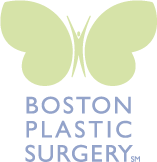Switzerland-Based Galderma Hopes to Acquire Q-Med, Maker of Restylane
Posted on December 14, 2010 | by Boston Plastic SurgeryGalderma SA, the Swiss maker of Cetaphil skin care products, has recently made a conditional offer of as much as 7.45 billion kronor ($1.08 billion) to acquire Q-Med AB, the Swedish maker of the Restylane family of injectable fillers.
Galderma plans to make its offer public in January, and Q-Med’s board has unanimously recommended that its shareholders accept the cash payout offer of 75 kronor a share, which is 13 percent more than Q-Med’s Dec. 10 closing price of 66.25 kronor per share.
All shareholders would purportedly receive this buyout offer with the exception of Q-Med’s founder and Chairman Bengt Aagerup, who would receive 58.94 kronor a share in cash for his 47.5 percent stake in the company.
The one condition of the offer is that Medicis Pharmaceutical Corp., the U.S. company that licenses the Restylane family of injectable fillers and serves as a business partner to Q-Med, must also accept Galderma’s offer, presumably so the Swiss company can achieve its goal of investing in more cosmetic treatment products.
The products that make up the Restylane family of fillers include Restylane, Restylane-L, Perlane and Perlane-L, which have been approved for cosmetic use in Europe since 1996 and in the U.S. since 2003.
Each of these products is derived from hyaluronic acid and used by doctors like Boston plastic surgeon Dr. Fouad Samaha to fill in wrinkles, plump thin lips and restore volume to facial features that have inadequate projection, such as the cheeks and chin.
Nestle SA and L’Oreal SA, the two companies that own Galderma, would each be paying half of the billion-dollar bill to acquire Q-Med, a relatively small amount of the 5 billion Swiss francs ($5.1 billion) that Nestle plans to spend on investments this year.
The acquisition would balance out Galderma’s other cosmetic holdings, such as Cetaphil skin care products and Azzalure, an injectable wrinkle-relaxer similar to Botox approved for use outside the U.S.
